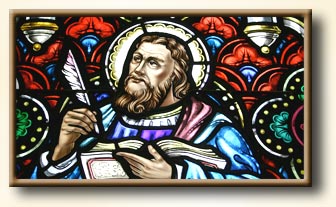|
The word “Protestant” is often loosely and to a large extent inaccurately applied to Anglican Churches. It is unfortunate that many Anglicans think of themselves as “Protestants.” In fact, Anglicanism is “Protestant” only in a most limited sense. It is Protestant in that it “protested” against and rebelled from the supreme authority of the Pope over all other bishops. It is also Protestant in that it “protested” against and set out to reform the many abuses which had crept into the worship and faith of the Roman Church of which the English Church had so long been a part.
In these limited senses, Anglicanism is indeed “Protestant,” and honorably so. However, the objection to thinking of Anglicanism primarily in terms of “Protestant” is that it serves to obscure the fact that, theologically and historically, Anglican Churches are Catholic. They retain the full and complete faith of Christianity, it its Sacramental form, and they are in continuity with the primitive Church, adhere to the ancient Creeds and base themselves firmly on the Scriptures. These, after all, are the marks of Catholicism, shared with the Eastern Orthodox, the Roman Catholics, the Old Catholics, some Lutherans, and others.
Catholicism goes back to the beginning. Protestantism stems essentially from the 16th century, and marks a break theologically as well as organizationally with the established, historic form of Christianity.
Anglicans can honor the Protestant Churches, can agree with them in some points. But Anglicans should never forget those marks of the full and complete Catholic faith which set them apart from Protestantism, such as sacramental worship and ministers who are priests in the line of the Apostles.
Anglicans have a right to think themselves as being part of “The Church,” not just a denomination, much less a sect. In the most literal sense, Anglican Churches do constitute a “denomination,” that is, a religious body considered simply as a category into which a given person is to be classified without reference to religious implications. But again, frequent use of this word, “denomination,” tends to blur and obscure the fact that Anglicanism is part of the Church Catholic, the full and historic Church.
In another leaflet in this series, a point has been made in discussing the term, “Catholic,” which ought to be repeated here and which all Anglicans should bear in mind. Anglicanism “is…a part of Catholicism which is Protestant Catholic insofar as it has ‘protested’ against the Supreme authority of the Pope. It is also Reformed Catholic insofar as it has always sought to remove…those abuses and excrescences which crept into the Church at various times from the Dark Ages to modern times. But whatever adjective is additionally applied, Anglicanism always retains the basic adjective of Catholic.”
In the light of the foregoing, Anglicanism has always thought of itself as a kind of bridge which might some day, in God’s providence, be used to bring together the Catholic and Protestant bodies. If that is ever to be, it will require the outmost faith, prayer, work, steadfastness and zeal from all Anglicans.
|



